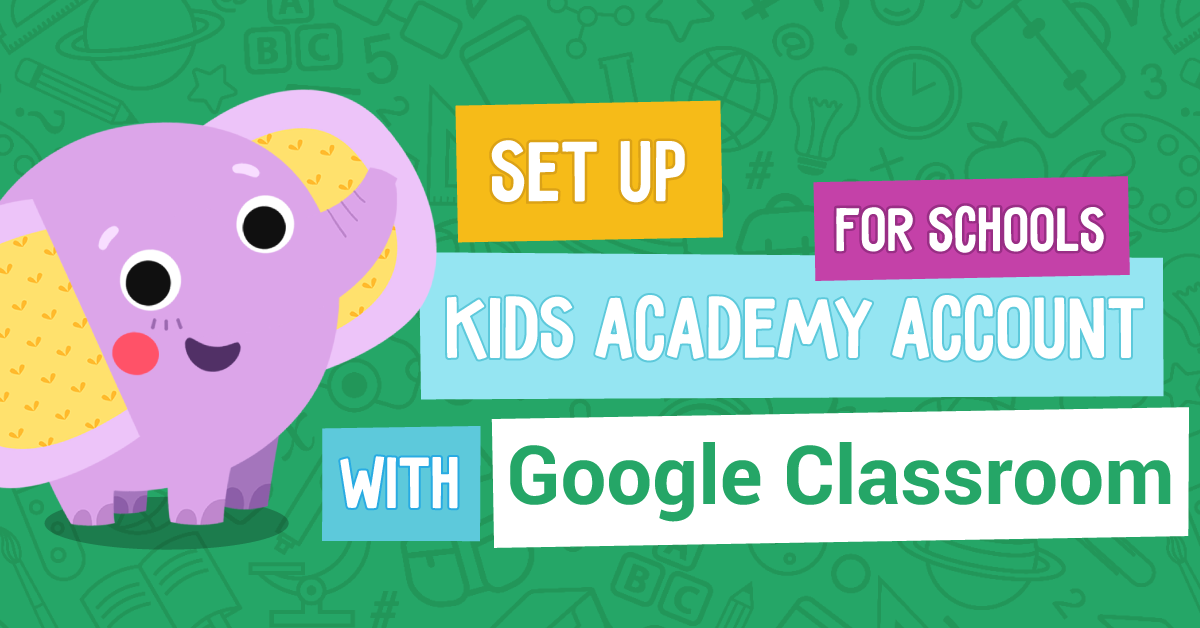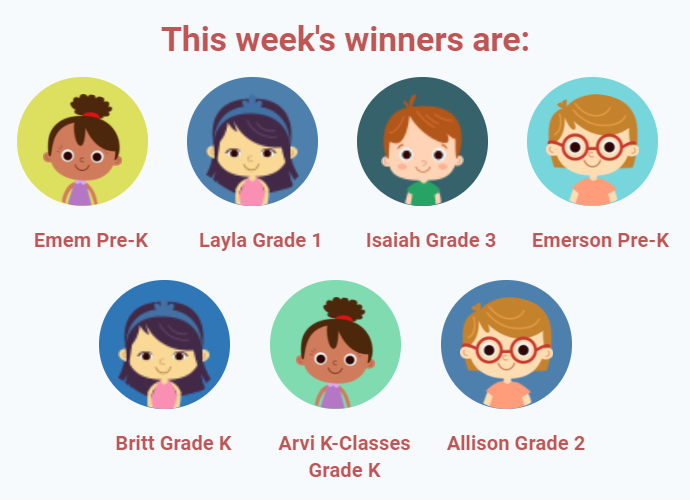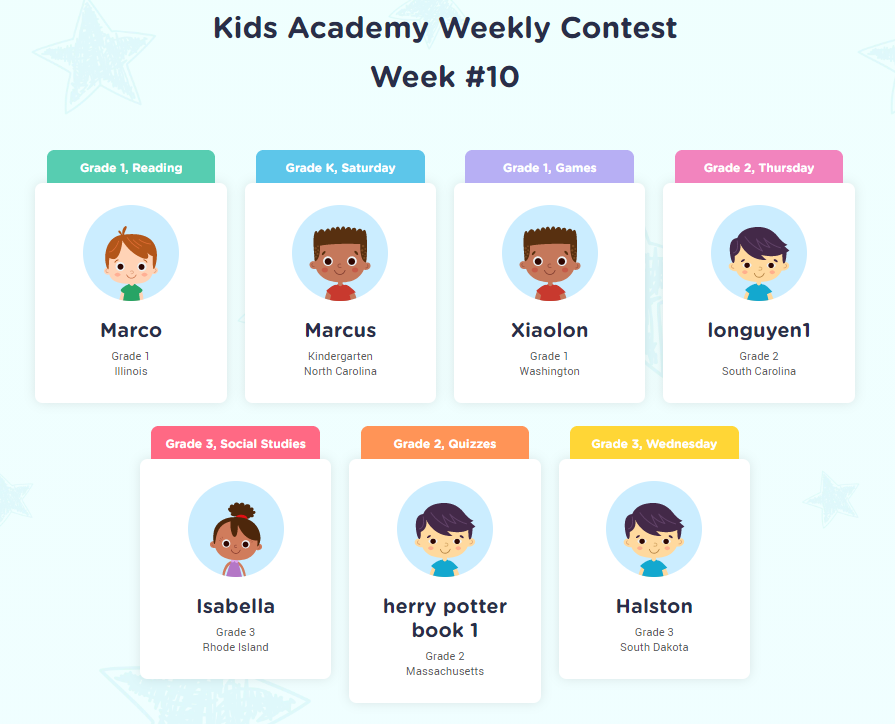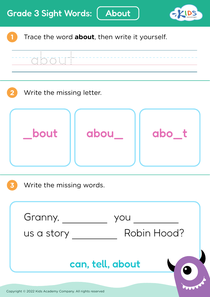RL.3.1 Key Ideas and Details worksheets With Answers for Grade 3
7 filtered results
-
From - To
Explore our engaging "RL.3.1 Key Ideas and Details" worksheets designed specifically for Grade 3 students. These resources help develop critical reading skills by encouraging students to identify key ideas and details in various texts. Each worksheet is thoughtfully crafted to align with Common Core standards, ensuring comprehensive support for educators. Accompanying answer keys are included, making assessment simple and efficient. Perfect for classroom use or homework assignments, these worksheets foster independent learning and improve comprehension skills. Discover a variety of themes and texts, and empower your students to extract and articulate essential information with confidence and clarity.
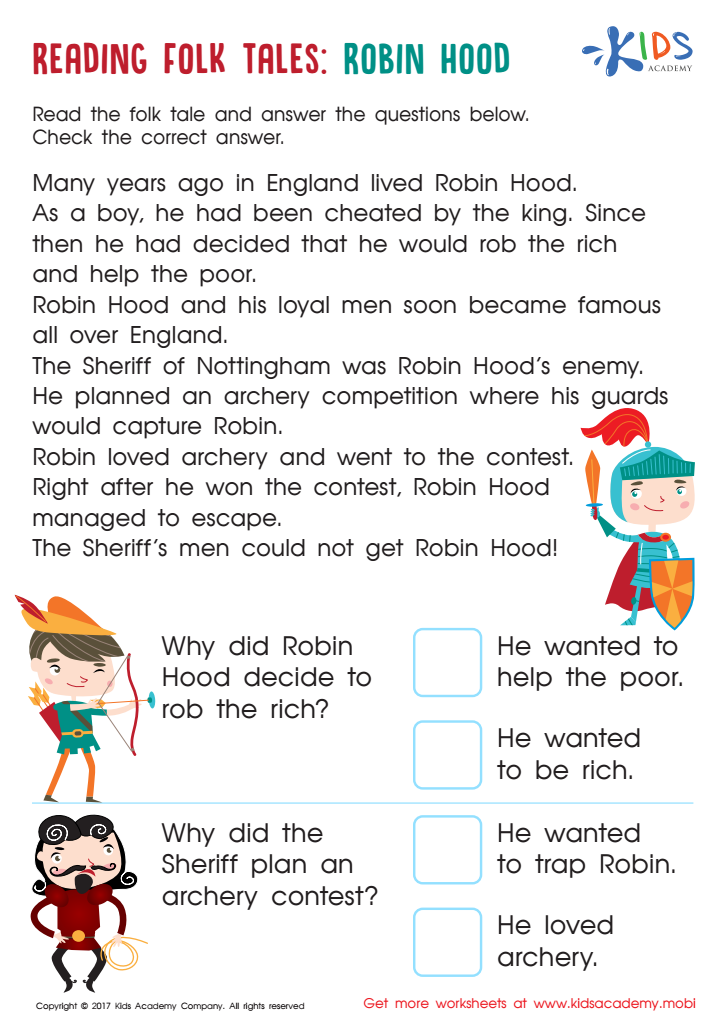

Robin Hood Folktale Worksheet
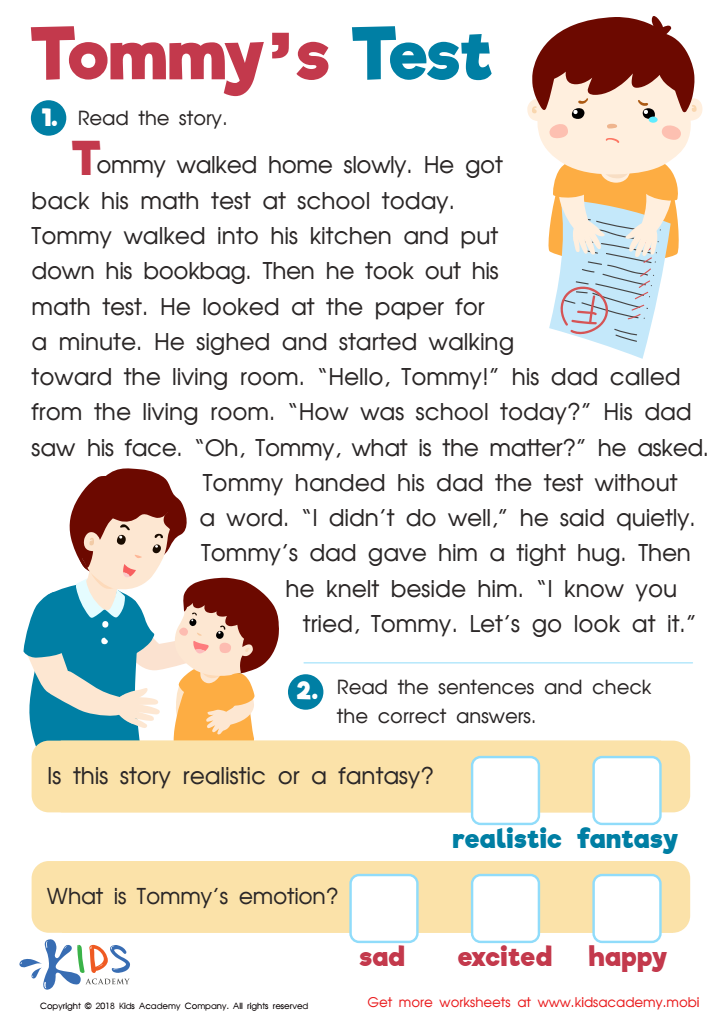

Tommys Test Worksheet
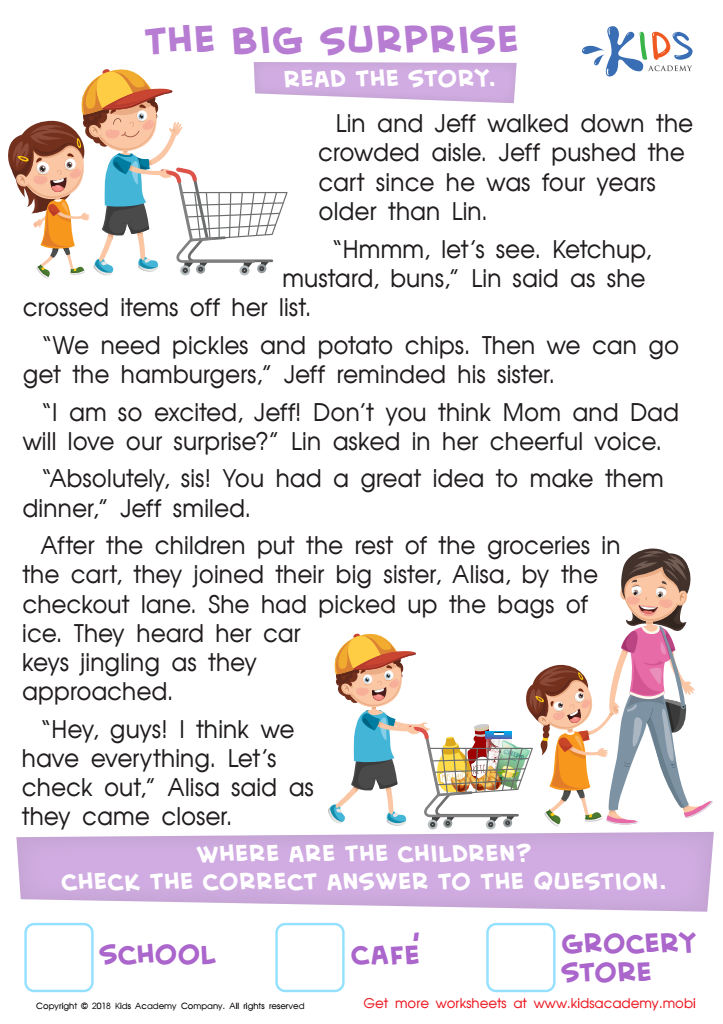

The Big Surprise Worksheet
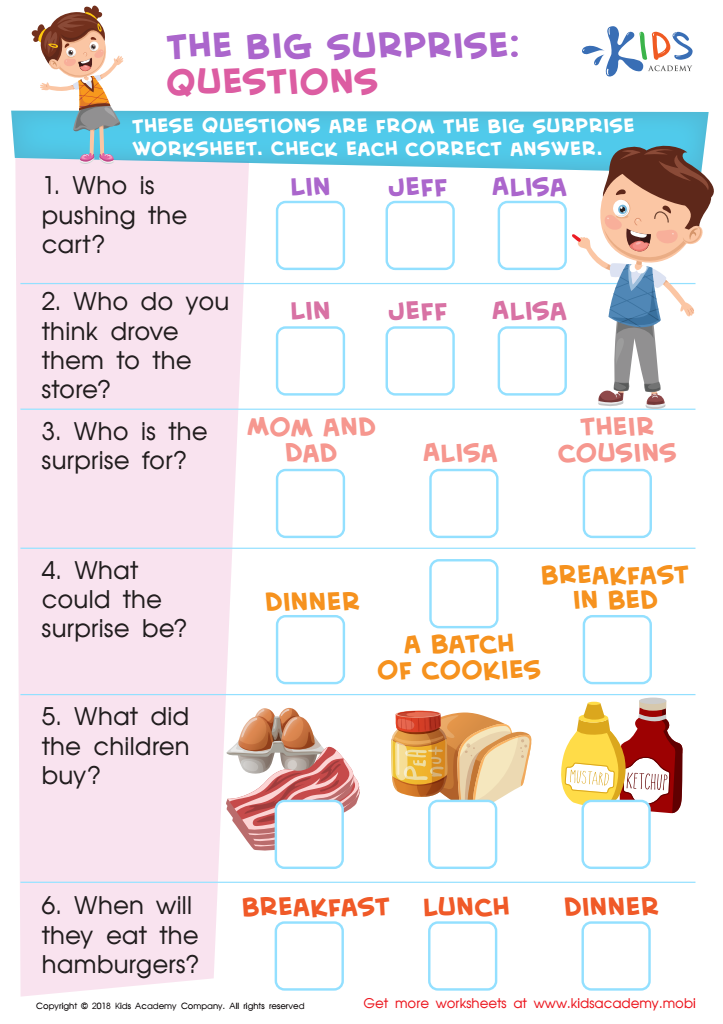

The Big Surprise: Questions Worksheet
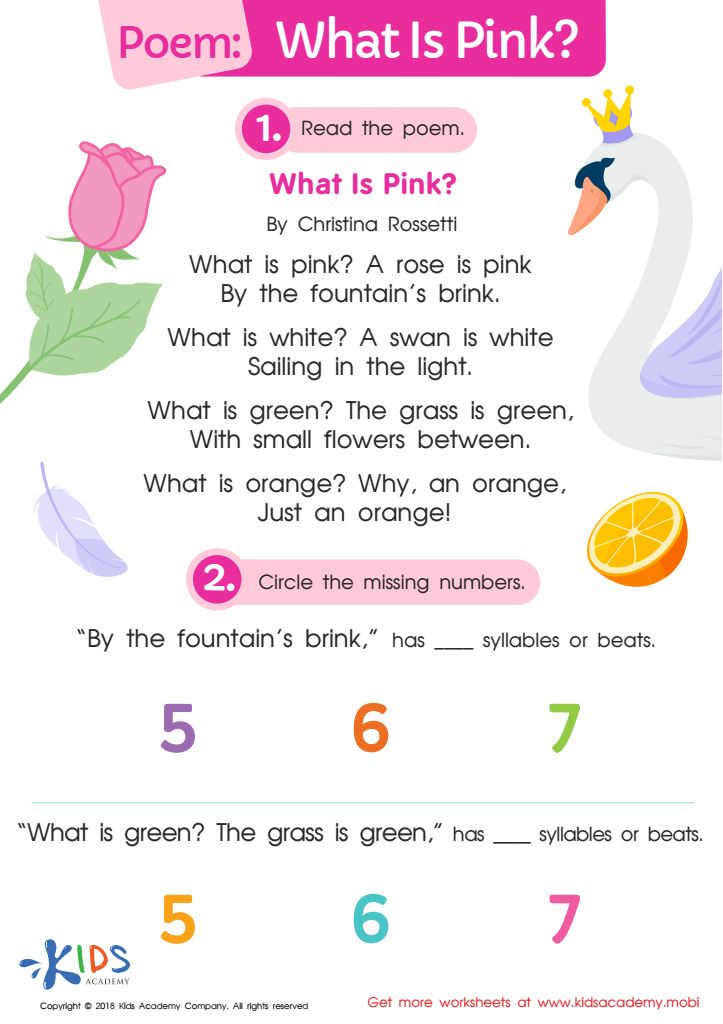

Poem: What Is Pink? Worksheet
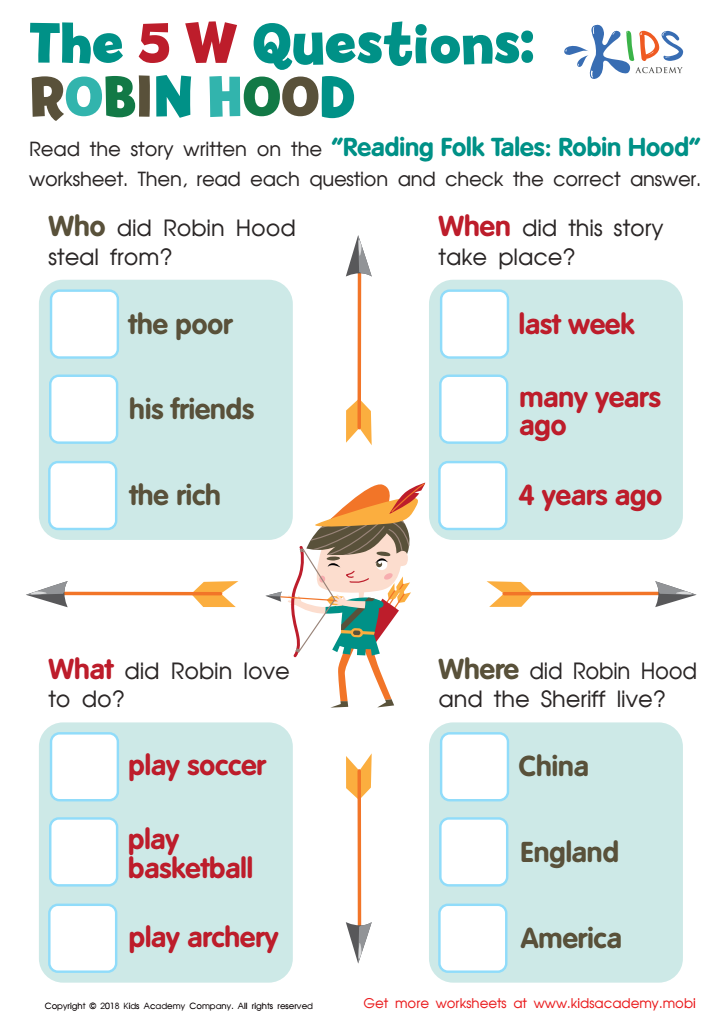

The 5 W Questions: Robin Hood Worksheet
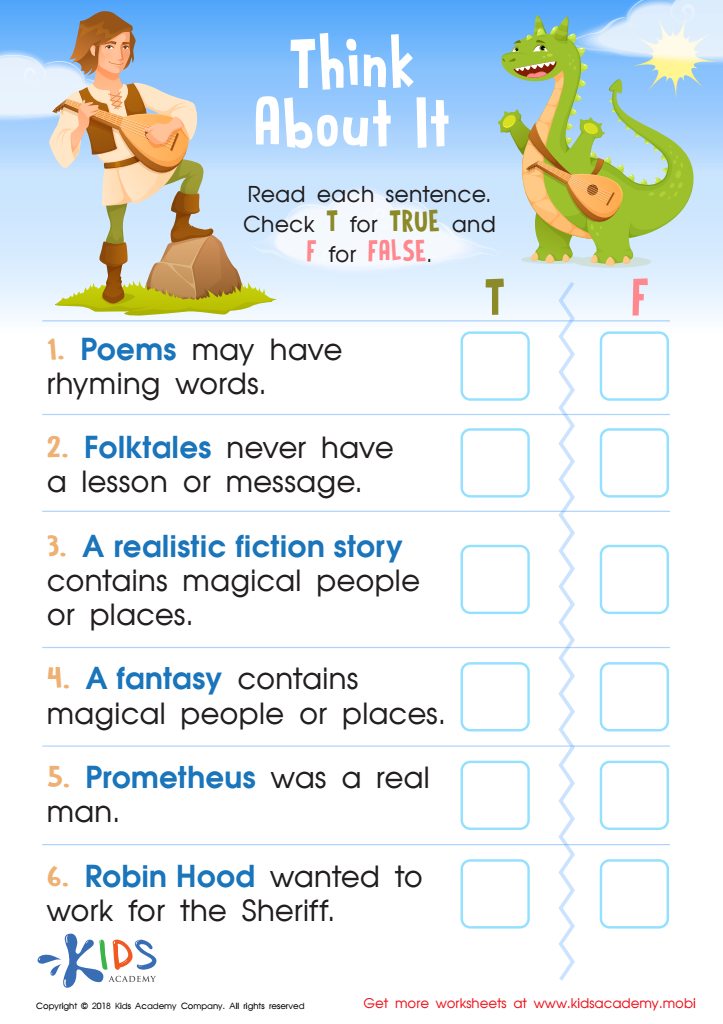

Think About It: Assessment Worksheet
Understanding RL.3.1 is crucial for both parents and teachers because it emphasizes the importance of comprehending and analyzing texts. This standard focuses on asking and answering questions about key details in a text, which helps students develop critical thinking skills. By encouraging children to cite specific textual evidence, parents and teachers can guide them to engage more deeply with the material, facilitating better retention and understanding.
For children in grade 3, mastering this skill lays a strong foundation for future learning. It enhances their ability to draw conclusions and make inferences, which are essential skills in academics and everyday life. By nurturing these skills at home or in the classroom, adults can foster a love for reading, promote discussion, and help students articulate their thoughts effectively.
Additionally, as students encounter increasingly complex texts, a solid grasp of RL.3.1 will better prepare them for higher grade levels. Supporting children in this area also empowers parents and educators to identify any struggles early, allowing timely interventions that can prevent long-term academic challenges. Ultimately, caring about RL.3.1 is investing in a child's literacy development, ensuring they become confident readers and thoughtful interpreters of the world around them.
 Assign to My Students
Assign to My Students


